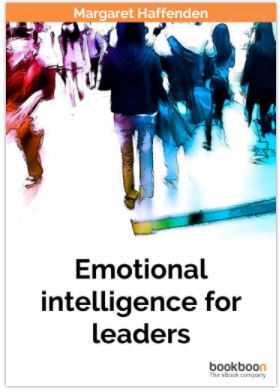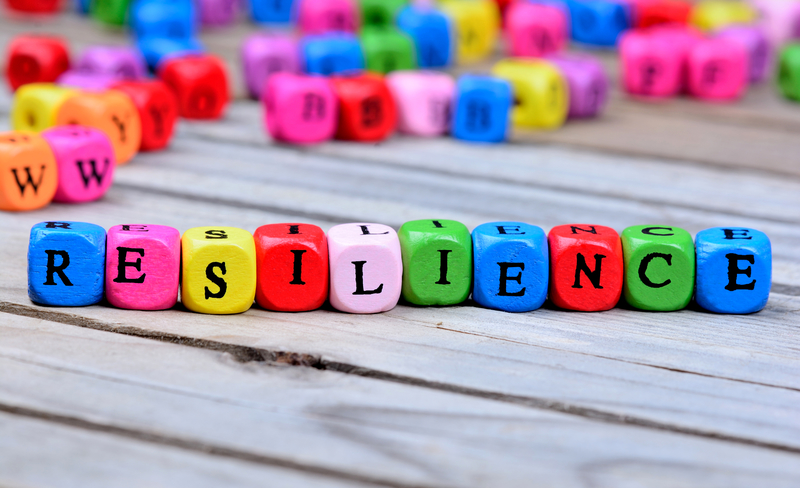Great Leadership: Be the Boss of Your Emotions

 This article series is about successful and great leadership with emotional intelligence. In the first part, we examined how you can become more aware of your emotional state at any given moment. In this article, we want to discuss what you can do about it.
This article series is about successful and great leadership with emotional intelligence. In the first part, we examined how you can become more aware of your emotional state at any given moment. In this article, we want to discuss what you can do about it.
Of course, it isn’t enough to know that you are feeling, say, angry or anxious: You need to know how you can prevent those emotions from having a negative impact – or maybe even learn how you can use them as tools to serve your goals.
The significance of self-composure
Emotions are a natural part of life – and that includes your working life. Learning to control your own emotions does not mean learning how to suppress them. In fact, the opposite is true: It means that by acknowledging that you are, like everyone else, reacting to certain inputs with certain emotions, you give yourself the opportunity not to let your emotions take control of your thoughts and your actions.
A critical part of good leadership, after all, is about being aware of all the influencing factors and about managing those factors professionally. And if you’re in charge and call the shots, your emotions are an important factor to consider. Furthermore, the following crucial people management skills depend on emotional stability:
- Being a bastion of calm in turbulent times:
When things go wrong or are in disarray, true leaders can keep their cool. They calmly but quickly analyze the situation and initiate necessary steps.
- Serving as a role model:
Being a good leader means, first and foremost, leading by example. You can’t expect your direct reports to control their temper if you can’t do it yourself.
- Withstanding personal attacks:
As a leader, you cannot afford to get distracted by turf wars or personal conflicts. When someone attacks you personally, no matter if it’s a colleague or a client, you need to be able to brush it off and move on.
This is what you need to do
In the first part of this article series, we discussed the skill set of emotional awareness. This skill set is the foundation you build upon: You take a look at the emotional triggers you identified and then take precautions to prevent those triggers from firing uncontrollably.
1. Make sure you know what your triggers are.
It’s worth taking a second and a third look at the specific situations, words, and maybe even people that make you feel a certain way: Most of us have internalized several patterns that cause us to have a specific emotional reaction to specific triggers. You need to know what your individual patterns are – because only then will you be able to break them.
2. Defuse your triggers.
Once you have your list of personal emotional triggers, go through each item of this list and examine it, by asking these two questions:
A. What effect does your standard reaction to this trigger have? Is it helpful or harmful?
B. Try to think of a specific example where this trigger occurred. Then ask yourself: What would’ve been the most productive response in this particular situation?
Go through your ideas for productive responses several times and make sure you memorize them well: They will be your guiding principles in emotionally challenging situations in the future.
So how can you make sure you really use the more productive response instead of the old pattern? Firstly, you need to prepare yourself for the situation: Let the signs of your physical reaction we discussed in the first article become the alert system that notifies you to prepare for “impact”. Secondly, take a moment to evaluate the situation before you react. This deliberate pause – no matter how long it actually takes – will make a huge difference.
Of course, as you suspect, all this is much harder to implement than it may seem at first glance. And yes, you will probably fail a few times. However, acquiring emotional intelligence is a long-term process, and continuously working on its three components will make huge difference, despite the failures you may experience on the way.
And now it’s time to shift the focus from your own feelings to those of the people you’re leading. In the third and final part, we’ll discuss the last major building block of emotional intelligence: a skill called empathy.
Don’t forget to read part 1 of this article series: Great Leadership: Take a Look at Yourself and part 3 Great Leadership: See Things Through Someone Else’s Eyes.



